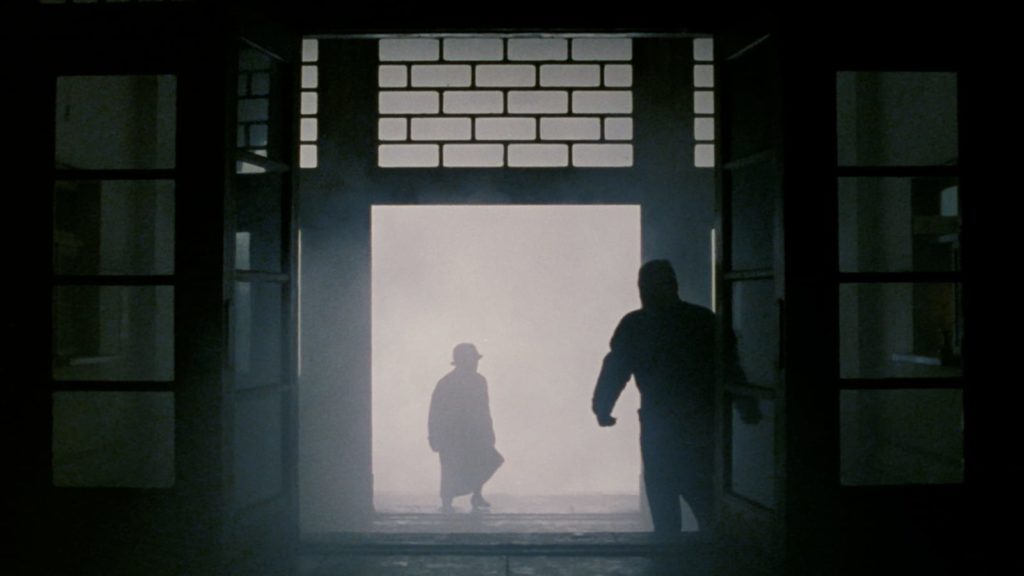
A faceless office building, the monotony of a Monday morning, a damp cloth to wipe away the weekend’s dust. Are our protagonists, who shepherd the newly deceased into the afterlife with one precious memory to take with them, angels? Takashi, Shiori, and their coworkers trudge through their day’s work with a calm, detached demeanour — it’s clear that each has seen dozens of stories from dozens of clients, and are just as intent on meeting their quotas as they are ensuring that each person gets their happy ending. As Shiori hilariously explains to one young woman, the Splash Mountain ride at Disneyland turns out to be a very popular memory to take with you. Similarly, recollections from childhood and of romantic affairs are also common. It’s in the details of each character’s decision, and how each is informed by the hopes and dreams they carried with them throughout their lives, that Kore-eda’s masterpiece comes into focus.
After Life develops like a film negative, gradually blooming to show us the full force of its narrative. We become so enveloped with the miniature dramas of its characters that the movie’s key story seems to develop in the background, subtle and unassuming but ultimately sublime. At what point does Takashi decide that he intends to join the others and leave the complex behind? Is he tired of staring at the fake moon in the sky? It’s clear that he is good at his job, but soon we learn that he himself has yet to complete his own assignment. When he meets an old man who struggles to assign any of his memories true meaning, Takashi ultimately discovers something in his story about himself, as well. That we see so much of this through Shiori’s perspective, youthful and stubborn but full of promise, gives the film the feeling of a distant memory of our own. When does one choose to say goodbye? Shiori decides she isn’t ready, and takes over Takashi’s old job. If she can’t move on, at least she can help others do the same.
After Life is a happy movie in many ways, but it also has a distinct sadness to it that fleshes out its magical realist world. It’s a film that begs to be talked about, picked apart, journaled. So many of its characters are instantly recognizable and unique: the man whose most precious memory is of a sunbeam at six months, the woman who desperately tries to trick our protagonists into filming a memory that never happened, the man who chooses a memory completely in darkness so he can truly forget his time on Earth. Kore-eda’s film is about the way we tell ourselves stories, as Joan Didion would say, and it uses the language of film — both textually and meta-textually — to show how we give these stories a life of their own. The care with which our protagonists recreate the feeling of a plane ride, complete with cotton clouds, floating wings, and a recording of an engine roaring, is magical in its own way, but there’s also a relatable sense of drudgery to it that’s uniquely Japanese. The film is bookended by the demands of the week — there are 22 clients for three employees get through in five days — and our protagonists work tirelessly to get them all into their theatre seats by Friday. The scene where all of them stare at the screen, at us, with a look of pure anticipation, was very powerful for me.
Ultimately After Life is a movie about time’s arrow. Shiori, like the others, like the young Iseya, elect to help others do what they cannot, but ultimately all but one of the 22 do end up moving on, and we believe that each will find peace in their afterlives, the best facsimile of their happiest moment with them forever. Is it like watching a movie over and over? Or is it more like the memory of having seen a truly special one, when all that’s left are the foggy details and the remnants of that one perfect feeling? I know this film, and the truly unique feeling it gave me, would be something wonderful to bring with me to whatever comes next.
This article was originally written for Letterboxd.